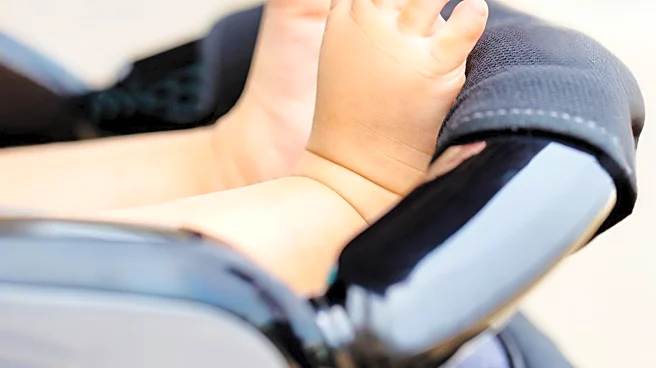What's Happening?
A professor at Imperial College London, William Wisden, has highlighted a simple method to improve sleep quality: warming the feet before bedtime. This technique, which can be achieved by taking a warm bath, soaking feet in warm water, or wearing socks, has been shown to help individuals fall asleep faster and experience longer periods of deep sleep. Studies have demonstrated that warming the skin before bed induces drowsiness and alters brain activity to promote deeper sleep. A 1999 study found that the dilation of blood vessels in the feet was a strong predictor of sleep onset, surpassing melatonin levels. Additionally, a trial involving older adults showed that warming feet before bed improved sleep duration and efficiency.
Why It's Important?
The significance of this finding lies in its potential to offer a natural alternative to sleep aids, which often come with side effects. By simply warming the feet, individuals can enhance their sleep quality without relying on medications like melatonin or Ambien. This method is particularly beneficial for older adults who may struggle with sleep issues. The approach also underscores the importance of understanding the body's natural processes and rhythms, offering a cost-effective and accessible solution to improve sleep hygiene.
What's Next?
Further research may explore the broader applications of this technique, potentially integrating it into sleep therapy programs. Healthcare providers might consider recommending this method as part of a holistic approach to managing sleep disorders. As awareness grows, individuals may increasingly adopt this practice, leading to a shift in how sleep issues are addressed.
Beyond the Headlines
The method of warming feet before sleep touches on the cultural practices of 'nesting' for sleep, which is common across various species, including humans. This highlights the intrinsic connection between environmental comfort and sleep quality, suggesting that modern sleep solutions could benefit from incorporating traditional practices.









